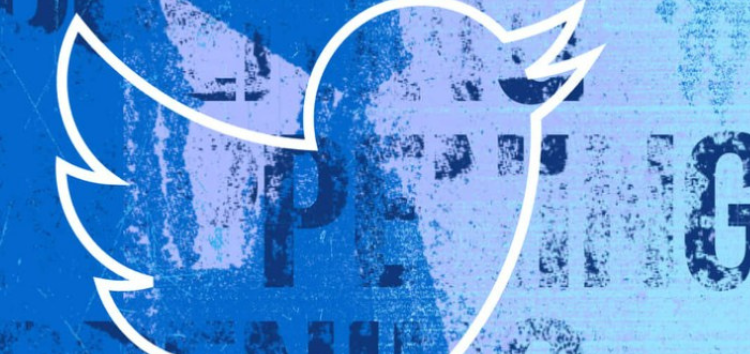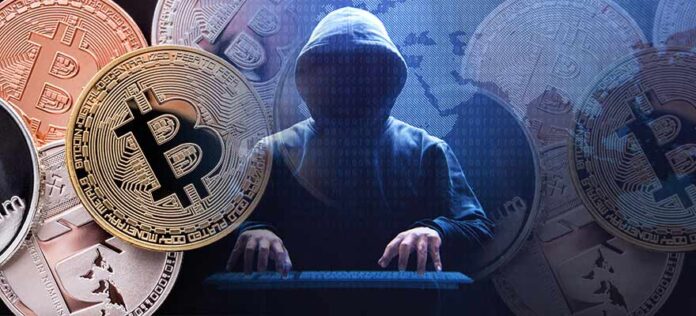Join Our Telegram channel to stay up to date on breaking news coverage
In a recent crypto fiasco, attackers used the social media accounts of prominent US online trading site Robinhood to spread the word about a fake cryptocurrency. Changpeng Zhao, CEO of Binance, claims that the incident-related account has been closed.
RobinhoodApp, the site’s official Twitter account, reminded its 1.1 million followers on Wednesday that the RHB token was being launched on Binance Smart Chain and that customers could buy coins for $0.0005. It also contained a link to the token’s listing on the PancakeSwap platform.
While Robinhood declined to address the attack on its platform, it did so in a discussion thread of another user’s article, stating that Twitter was not the only account impacted and writing: “We are aware of the unlawful tweets, Instagram postings, and Facebook updates from the Robinhood profiles that were quickly deleted.” Currently, based on the results of our continuing investigation, we think the problem was caused by a third-party vendor.
Although the earlier post has now been taken down, an archive.org copy of it is still accessible, and several people had taken pictures of it before the article was taken down.
The event involved Binance and its blockchain, so Zhao, also known as CZ, the exchange’s CEO, declared that the problematic account had been frozen and that an investigation was ongoing. CZ said, “Always exercise critical thinking, even if the account appears to be true.” Conor Grogan, the director of product company operations at prominent cryptocurrency exchange Coinbase, stated that before the tweet was deleted, roughly 10 individuals had purchased the token for about $1,000.
Meanwhile, Sam Bankman-Fried, the founder as well as previous CEO of the failing FTX exchange, and Gary Wang, the other co-founder of FTX, had their challenged 56 million assets of Robinhood, valued at over $500 million, taken by the US Justice Department earlier in January.
To Promote a Scam, Hackers take control of the Robinhood Twitter Account
On Wednesday, hackers broke into the Robinhood exchange’s Twitter account. In a now-deleted tweet, the compromised account was employed to promote a fraud selling digital tokens as well as NFTs here on Binance Smart Chain via the decentralized exchange PancakeSwap.

Also compromised were Robinhood’s other social media accounts. Internet sleuth ZackXBT published a Binance Smart Network analysis that revealed that the scammers managed to escape with 26.95 BNB coins, or around $8,200. The wallet that benefited from the fraud, according to ZackXBT, was housed on the Binance blockchain exchange. The profile had been locked pending additional investigation, said Changpeng “CZ” Zhao, CEO of Binance.
We’re aware of the unauthorized posts from Robinhood Twitter, Instagram, and Facebook profiles, which were all removed within minutes. At this time, based on our ongoing investigation, we believe the source of the incident was via a third party vendor.
— Robinhood (@RobinhoodApp) January 25, 2023
Robinhood said, “We are aware of the illegal posts from Robinhood’s Facebook, Twitter, as well as Instagram pages, all of which were erased within minutes.” According to our continuing investigation, we currently think the problem was caused by a third-party vendor.
Examining the Damage From the Robinhood Hackers
Twitter frauds are nothing new; normally, accounts are taken over through phishing or SIM-jacking attempts. The “God Mode” feature of Twitter is one less well-known assault method. According to a story published on Wednesday by The Washington Post, a former Twitter technician informed the FTC that the service includes a “god mode” that enables Twitter workers to view any account. With access to this functionality, hackers may pretend to be any account they choose and attack unwitting victims.
Cybercriminals managed to breach Twitter’s security on July 15, 2020. In addition to former US President Barack Obama and President (then Vice President) Joe Biden, they also used the aliases of Bill Gates, Apple, Elon Musk, Kanye West, Uber, and Warren Buffet.
Federal investigators claim that $117,000 in BTC was obtained through a Bitcoin fraud that was promoted by the hacked accounts. In relation to the Twitter hack, US and UK law enforcement officials detained Mason Sheppard, Nima Fazeli, and Graham Ivan Clark. In the end, Clark received a three-year federal jail term.
The Story of How It All Started
Today’s fraud began when the con artist received many BNB, the native currency of Binance, worth about $1,000 from a Binance digital wallet that contains $19.6 million in different tokens (Tx1 and Tx2).
Before initiating a transaction that produced 100 million RBH currencies into its address, the fraudster first carried out a number of test activities to generate BEP-20 coins (Tx3, Tx4) as well as increase the liquidity of PancakeSwap pools (Tx5, Tx6). In order to contribute those 100 million RBH coins as well as 3.1 wrapped BNB coins as liquidity to the PancakeSwap pool, the con artist then initiated a transaction.
The fraud reached a climax when Robinhood announced the launch of the bogus cryptocurrency on its Facebook and Twitter pages, increasing the amount of sales in the pool comprised of the two assets, WBNB and RBH.
According to blockchain security firm CertiK, different assaults, hacks, and scams will cost over $3.7 billion in 2022. The performance of 2023 is still uncertain.
Scam Token is promoted on Binance’s BNB Chain by Robinhood’s Twitter Account in unauthorized posts
The debut of the RBH cryptocurrency on the Binance Smart Blockchain was quickly assumed to be a bogus cryptocurrency project by the crypto industry, which also assumed that Robinhood’s social media profiles, which had 1.6 million subscribers across Instagram, Twitter, as well as Facebook, had already been hacked.

Changpeng Zhao, CEO of Binance, stated that it “seems like a Robinhood account has been hacked” and emphasized the value of using critical thinking while evaluating a coin’s marketing on the BNB Chain.
Although the Robinhood tweet was later deleted, 61 addresses still own RBH, as per BscScan, and as of the time of publication, the $16,335 valuation of wrapped BNB has been exchanged for the “new” currency in a PancakeSwap pool.
As a result of our continuing investigation, we think the incident’s origin was a third-party vendor, according to a statement released by Robinhood after learning of the illegal social media posts.
These attempts are expected to continue even if the amount of cash stolen is still very little in comparison to the significant hacks that happened in 2022, like the $325 million from the Wormhole Bridge assault and the $200 million from Nomad Bridgereach.
Read More:
Fight Out (FGHT) – Newest Move to Earn Project
- CertiK audited & CoinSniper KYC Verified
- Early Stage Presale Live Now
- Earn Free Crypto & Meet Fitness Goals
- LBank Labs Project
- Partnered with Transak, Block Media
- Staking Rewards & Bonuses
Join Our Telegram channel to stay up to date on breaking news coverage
Credit: Source link






















 Bitcoin
Bitcoin  Ethereum
Ethereum  XRP
XRP  Tether
Tether  Solana
Solana  USDC
USDC  Dogecoin
Dogecoin  Cardano
Cardano  Lido Staked Ether
Lido Staked Ether  TRON
TRON  Wrapped Bitcoin
Wrapped Bitcoin  Wrapped stETH
Wrapped stETH  Chainlink
Chainlink  Avalanche
Avalanche  Sui
Sui  Stellar
Stellar  Litecoin
Litecoin  Shiba Inu
Shiba Inu  Toncoin
Toncoin  Hedera
Hedera  LEO Token
LEO Token  USDS
USDS  Hyperliquid
Hyperliquid  Polkadot
Polkadot  WETH
WETH  MANTRA
MANTRA  Bitcoin Cash
Bitcoin Cash  Ethena USDe
Ethena USDe  Bitget Token
Bitget Token  Wrapped eETH
Wrapped eETH  Uniswap
Uniswap  Monero
Monero  NEAR Protocol
NEAR Protocol  Pepe
Pepe  WhiteBIT Coin
WhiteBIT Coin  Aave
Aave  Ondo
Ondo  Bittensor
Bittensor  Aptos
Aptos  Internet Computer
Internet Computer  Dai
Dai  Official Trump
Official Trump  Ethereum Classic
Ethereum Classic  Tokenize Xchange
Tokenize Xchange  Mantle
Mantle  OKB
OKB  Gate
Gate  sUSDS
sUSDS  Coinbase Wrapped BTC
Coinbase Wrapped BTC 